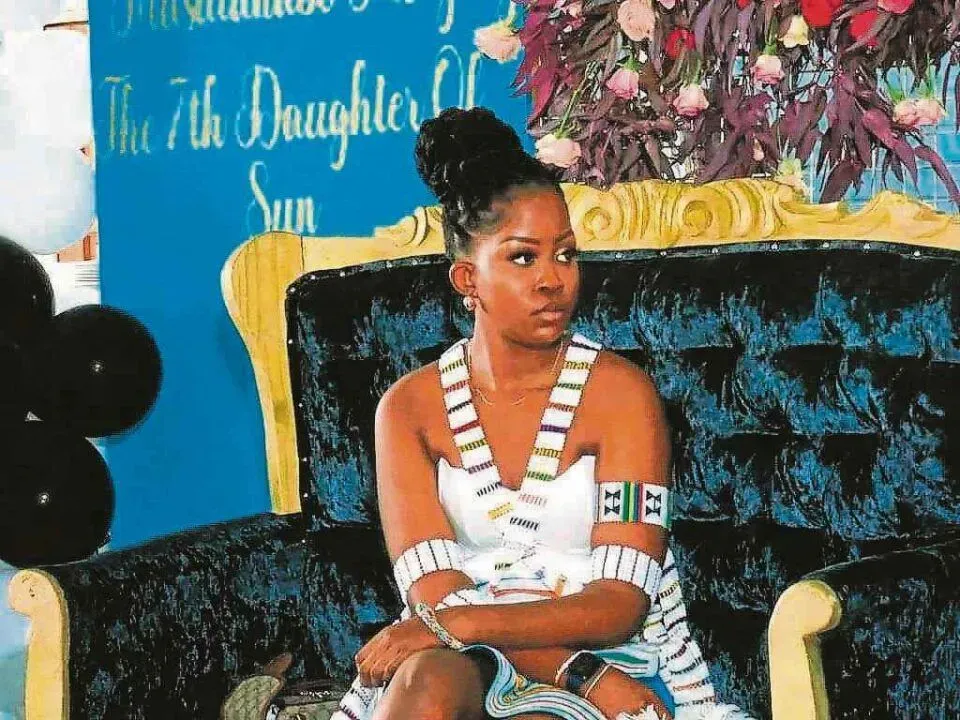
In a groundbreaking reimagining of Queen Modjadji’s legacy, a new sci-fi series by director Lwazi Duma and writer Zigi Yeni transports audiences to a dystopian 2062 South Africa, grappling with the devastating impacts of climate change. With a budget of R80 million, the series follows Tebello Modjadji, the reluctant heir to the Rain Queen’s mantle, as she embarks on a journey to unlock ancient rainmaking secrets vital for her people’s survival amidst crippling drought. This innovative blend of traditional Balobedu culture, rich mythology, and contemporary climate themes promises to intrigue viewers while invoking discussions about heritage and environmental stewardship. The series builds on the success of Mzansi Magic’s 2024 hit, creating renewed excitement for the enduring legacy of the Rain Queen and her matrilineal monarchy.
Reimagining Heritage in a Futuristic Context
The new Modjadji sci-fi series offers a unique opportunity to recontextualize the rich heritage of Queen Modjadji within a futuristic South Africa. Set in 2062, the series features Tebello Modjadji, a reluctant heir navigating a world devastated by climate change. This imaginative narrative serves not only to entertain but also to educate viewers about vital issues surrounding climate crises, making heritage relevant to contemporary audiences. By weaving traditional customs and stories into a sci-fi framework, the series highlights the importance of understanding one’s roots while addressing the modern world’s pressing challenges.
Queen Modjadji, revered as the Rain Queen, symbolizes the connection between culture and leadership in the Balobedu community. The series’ relocation of this legacy into a sci-fi setting allows for a deeper exploration of matrilineal succession and the responsibilities that come with it. In doing so, it encourages discussions around gender representation and leadership roles in African societies. By blending these elements with futuristic trials, the narrative invites viewers to reflect on their own cultural legacies and how they might confront the realities of climate change and governance in the modern era.
Climate Themes and Storytelling
At the forefront of the Modjadji sci-fi series is a poignant commentary on climate change, highlighting its profound impact on South Africa’s landscape and people. With the plot revolving around severe drought, the show compels audiences to grapple with the implications of environmental degradation and resource scarcity. This narrative choice not only strengthens the connection to real-world issues but also emphasizes the importance of traditional knowledge in modern-day problem-solving. The show’s creators, including director Lwazi Duma, skillfully integrate these themes into an engaging storyline that resonates with viewers, prompting them to ponder their role in combating climate change.
The series’ impressive budget of R80 million reflects both the ambition behind the project and the commitment to high-quality storytelling that blends speculative fiction with serious environmental themes. By showcasing the journey of Tebello Modjadji as she seeks to unlock her family’s ancestral rainmaking secrets, the series illustrates how heritage can provide practical solutions to current crises. This narrative choice serves to empower audiences by demonstrating that the wisdom of the past can inspire innovative responses to the challenges we face today, making the show relevant and relatable.
Cultural Representation and Modern Amplification
As the Modjadji sci-fi series develops, it significantly contributes to the representation of African culture in mainstream media. By focusing on the Balobedu people’s matrilineal monarchy and the powerful figure of Queen Modjadji, the narrative breaks away from traditional portrayals often dominated by male characters in historical dramas. This progressive approach not only further cements the relevance of African heritage but also showcases the strength and resilience of women leaders in a male-represented narrative sphere. Such representation fosters a more nuanced understanding of African cultures and inspires future generations, especially young women, to embrace their leadership potential.
Furthermore, the series taps into the growing trend of Afro-futurism, a movement that seeks to explore African identities through speculative, imaginative scenarios. By exploring the intersection of advanced technology and ancestral wisdom, the Modjadji series exemplifies how cultural narratives can evolve without losing their essence. This blend of the mystical and the futuristic positions the series as a thoughtful commentary on identity, heritage, and the future. As viewers engage with this reimagined legacy, they are prompted to consider how traditional narratives can be reinvented to address contemporary realities, ultimately enriching the discourse around cultural storytelling in modern society.
In summary, the upcoming Modjadji sci-fi series set in 2062 South Africa presents a captivating reimagining of the legacy of Queen Modjadji, focusing on climate crises, heritage, and mythology. Led by director Lwazi Duma and writer Zigi Yeni, the series centers on the character of Tebello Modjadji, a reluctant heir who must uncover her family’s rainmaking secrets amid a future plagued by severe drought. With an impressive budget of R80 million, the project aims to fuse traditional Balobedu culture with contemporary climate themes, exploring the matrilineal monarchy of the Balobedu people and the enduring significance of the Rain Queen. Following the success of the earlier Mzansi Magic series dedicated to Queen Modjadji, this new narrative promises to reignite interest in African traditions while embracing Afro-futurism, thus sparking conversations about identity, heritage, and resilience in the face of environmental challenges.




